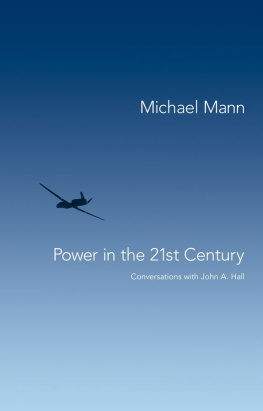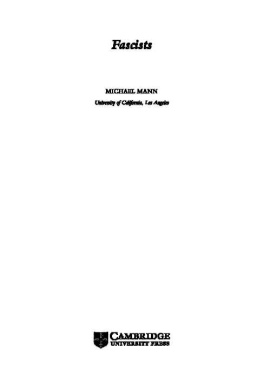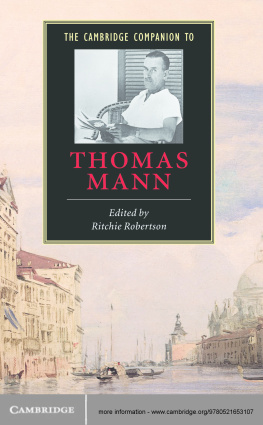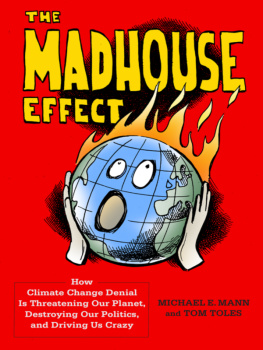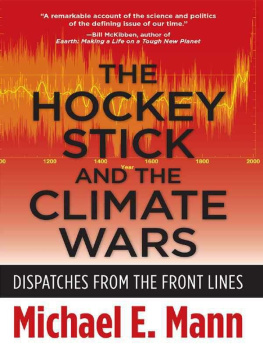The Philosophy of Michael Mann
THE PHILOSOPHY OF
MICHAEL MANN
Edited by
STEVEN SANDERS, AEON J. SKOBLE,
AND R. BARTON PALMER

An Introduction to the Philosophy of Michael Mann and Existential Mann copyright 2014 by Steven Sanders
Copyright 2014 by The University Press of Kentucky
Scholarly publisher for the Commonwealth,
serving Bellarmine University, Berea College, Centre College of Kentucky, Eastern
Kentucky University, The Filson Historical Society, Georgetown College, Kentucky
Historical Society, Kentucky State University, Morehead State University, Murray
State University, Northern Kentucky University, Transylvania University, University of Kentucky, University of Louisville, and Western Kentucky University.
All rights reserved.
Editorial and Sales Offices: The University Press of Kentucky
663 South Limestone Street, Lexington, Kentucky 40508-4008
www.kentuckypress.com
Library of Congress Cataloging-in-Publication Data
The philosophy of Michael Mann / edited by Steven Sanders, Aeon J. Skoble, and R. Barton Palmer.
pages cm.
Includes bibliographical references and index.
ISBN 978-0-8131-4471-9 (hardcover : alk. paper) ISBN 978-0-8131-4473-3 (pdf) (print)ISBN 978-0-8131-4472-6 (epub)
1. Mann, Michael, 1943Criticism and interpretation. I. Sanders, Steven, 1945- editor of compilation. II. Skoble, Aeon J. editor of compilation. III. Palmer, R. Barton, 1946- editor of compilation.
PN1998.3.M338835P46 2014
791.4302'33092dc23 | 2014003470 |
This book is printed on acid-free paper meeting the requirements of the American National Standard for Permanence in Paper for Printed Library Materials.

Manufactured in the United States of America.

| Member of the Association of American University Presses |
CONTENTS
Steven Sanders
Robert Arnett
R. Barton Palmer
Steven Sanders
Aeon J. Skoble
David Sterritt
Ivo Ritzer
Steven Rybin
Murray Pomerance
Tom Paulus and Vito Adriaensens
David LaRocca
Mark Wildermuth
Aga Skrodzka
Alan Woolfolk
Jonah Corne
David Rodrguez-Ruiz
AN INTRODUCTION TO THE PHILOSOPHY OF MICHAEL MANN
Steven Sanders
Michael Manns personal involvement as a writer, director, and producer has given him the reputation of being an unusually talented triple threat in Hollywood. He has been called one of the most breathtaking cinematic stylists of his era and Hollywoods foremost urbanist.1 His ability to recreate the language and visualize the circumstances of the crime cultures he so often infiltrates is as uncanny as it is illuminating. His diagnosis of the circumstances of his existential protagonists in the alienated urban space of postmodern capitalism incorporates a film noir sensibility even as it investigates the cultural dilemmas of the twenty-first century. His numerous television-scriptwriting credits, directorial achievements, and executive-producing expertise have earned him the respect of his peers and the gratitude of fans worldwide.
Manns work bears the unique signature of his probing intelligence and aesthetic flair in many and diverse formats and forms: from documentaries to biopics, from period interpretations of classic literature to neo-noir urban-crime feature films; from socially conscious examinations of corporate misconduct to stunning automobile advertisements for Mercedes-Benz and Ferrari; from a network television series about undercover police work in 1980s Miami to one about mob turf wars in early 1960s Chicago, Las Vegas, and Central America to an HBO series about horse racing in Southern California. Add to these credits Manns new projects in development (about which there is always speculation), and it is easy to see why those who would take the full measure of his career achievements have their work cut out for them. The Philosophy of Michael Mann is the first collection of original essays by scholars in philosophy, film criticism, literature, and elsewhere to identify, describe, and open up for discussion some of the most interesting philosophical themes in Manns ten feature films, his early telefilm, The Jericho Mile (1979), and the network television series he executive-produced, Miami Vice (19841989) and Crime Story (19861988).2 The essays, some of which provide readings of Manns work inspired by existentialism, postmodernism, and film noir, keep faith with readers who have made the Philosophy of Popular Culture Series an important, admired, and accessible forum for the philosophical discussion of the work of such film exemplars as Stanley Kubrick, Martin Scorsese, and Steven Spielberg and of such genres as neo-noir, science fiction, and the Western. Throughout this book, such themes as existential choice, evil and power, style and its discontents, justice, law, and ethics are introduced, elucidated, applied to Manns work, and evaluated. Rather than trying to pinpoint the philosophy of Michael Mann, as the volumes title might lead some readers to expect, the contributors are remarkably eclectic in their approaches, areas of interest, and presuppositions. Some invoke historical figures such as Aristotle, Locke, Kant, and Rousseau, whereas others utilize contemporary European philosophers such as Foucault, Deleuze, Guattari, and Levinas, and still others revisit recent film theorists and critics such as David Bordwell and Sean Cubitt to fashion an understanding of Manns work. Some of the essays emphasize Manns existentialist ideas, others focus on his aesthetics of horror, and still others discuss his critique of the corporatization of crime and his creation of a new noir that brings together images of relationships, work, and individual striving in the megalopolises of Los Angeles and Miami and the evolution of a wholly new model of criminal trafficking on a global scale.
Authorship and the Rise of the Crime Auteur
Manns well-known involvement as a writer-director-producer of feature films, television series, and documentaries as well as his transformation of the urban-crime genre from a redoubt of film noir into a contemporary commercial sector, which some have thought comparable to the work of his contemporary Martin Scorsese, would seem to put him in a strong position to bear the honorific auteur. In The Cinema of Michael Mann: Vice and Vindication, Jonathan Rayner discusses the question of Manns authorship and writes, Manns authorship must be viewed in several chronological, industrial, and formal contexts: the post-classical context, inflected by television but still marked by the influence of experimentation in American film of the 1960s and 1970s, in which his career begins; the brand name, commercial American auteurist cinema of the 1980s and 1990s in which Manns signature and success become established; and the emerging digital cinema of the new millennium, in which Manns films are proving instrumental in defining.3 And in defining Mann as a crime auteur, Steven Rybin remarks that it is fair to call Mann a crime auteur, given his career-long predilection for crime as a genre and a narrative trope, even in his noncrime films. Indeed, crime may be the key trope for understanding [the] vexed relationship between Manns men and the world they inhabit.4 Nevertheless, Manns designation as an auteur, the creator or author of the cinematic or televisual work of art, has been challenged both by those who have never adopted auteur analysis and by those who think there might be something to the notion of the auteur but do not think Mann qualifies as one.5 This controversy heated up when, in the full flush of the popularity of
Next page

